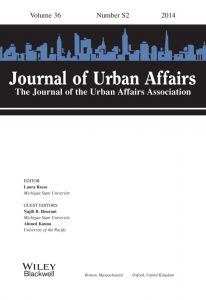A gender milestone: First women presidents in U.S. higher education institutions
By In today’s tense higher education landscape, one may wonder why anyone would take on the role of a university or college president. Indeed, even before the recent accusations against women academics, women who sought to or served as executive leaders of higher education institutions (HEIs) faced gender bias, racial discrimination, and other challenges. Despite this, the number of women presidents in HEIs tripled from 9.5% to 33% between 1986 and 2023. In addition to the personal and professional satisfaction...



















1540-6237/asset/SSSA_Logo-RGB.jpg?v=1&s=c337bd297fd542da89c4e342754f2e91c5d6302e)
1754-9469/asset/society_affiliation_image.gif?v=1&s=9197a1a6ba8c381665ecbf311eae8aca348fe8aa)